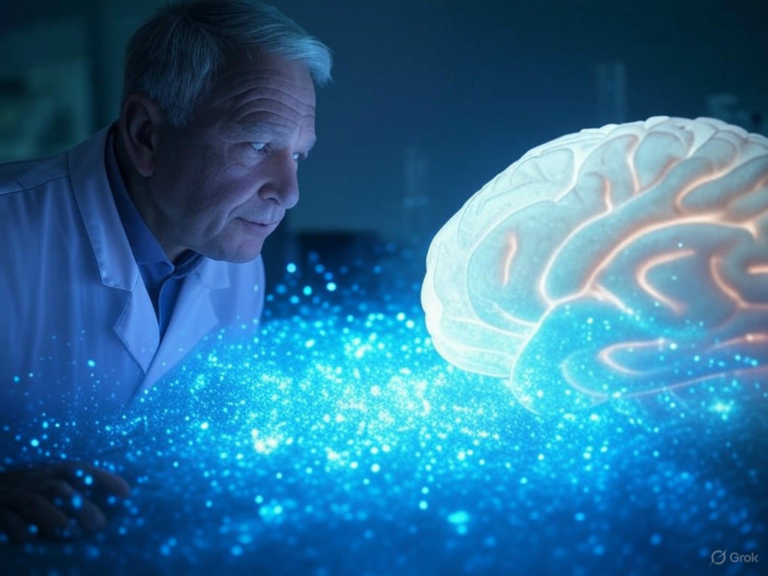
AI in Medicine: Understanding Applications and Benefits
The Rise of AI in Medicine
Imagine a world where technology not only supports doctors but actually anticipates health issues before they escalate—that’s the reality we’re stepping into with AI in medicine. Today, artificial intelligence is reshaping healthcare by boosting patient outcomes and making clinical processes more efficient. This piece dives into the key applications and tangible advantages that AI in medicine offers, from faster diagnoses to smarter treatment plans.
Defining AI in Medicine
AI in medicine harnesses algorithms, machine learning, and data analysis to tackle tasks that once relied solely on human expertise. Think about it: these systems can sift through vast datasets to spot hidden patterns in medical images or predict potential health risks that might escape even the most experienced eyes. According to a study from Harvard Medical School, this approach isn’t just about speed; it’s about uncovering insights that lead to better decision-making in everyday care.
Exploring the Main Applications of AI in Medicine
Early Disease Detection and Diagnosis with AI
One of the standout uses of AI in medicine is its ability to catch diseases early, potentially saving lives. By examining symptoms, records, and scans, AI algorithms can flag issues like cancer or heart conditions long before they become critical. Have you ever wondered how a machine could outperform a doctor? Well, in radiology, AI tools are already matching or surpassing human accuracy in spotting tumors early, as highlighted in research from the National Institutes of Health.
- This means quicker, more reliable diagnoses that cut down on errors caused by fatigue or oversight.
- Early alerts often translate to higher survival rates, giving patients a real fighting chance.
- For instance, AI might analyze your routine check-up data to suggest proactive tests—could this be the key to preventing major health scares?
Personalized Treatment Through AI in Healthcare
Another game-changer is how AI in medicine tailors treatments to individual needs. It sifts through genetic data, lifestyle factors, and past medical history to recommend therapies that work best for you. Picture this: an AI system predicts how your body will react to a drug, helping doctors avoid side effects and choose more effective options. This personalization isn’t futuristic—it’s here, enhancing patient engagement through virtual tools that feel like a conversation with a knowledgeable friend.
- Custom plans based on your unique profile can make treatments feel less generic and more empowering.
- Ever thought about how AI could help predict drug responses? It uses data to minimize trials and errors.
- Actionable tip: If you’re dealing with chronic conditions, look into apps that integrate AI for daily health tracking.
Predictive Analytics in AI-Driven Medicine
AI shines in forecasting risks, such as predicting sepsis or post-surgery complications by reviewing health records in real time. This proactive approach lets healthcare teams step in early, often averting crises. It’s like having a watchful guardian that analyzes trends to alert doctors before problems worsen. A report from IBM emphasizes how this capability is transforming patient monitoring into a more preventive strategy.
- Instant alerts help manage population health more effectively, catching issues at the community level.
- This could mean faster responses to outbreaks, as AI processes data from various sources swiftly.
- Consider a scenario: Your wearable device feeds data to an AI system, flagging early signs of heart strain—what a relief that would be!
Advancements in Medical Imaging with AI
When it comes to scans and diagnostics, AI in medicine acts as an extra set of precise eyes. Deep learning models enhance the analysis of X-rays, MRIs, and CTs, spotting anomalies like fractures or lesions with remarkable accuracy. This support reduces the burden on radiologists and speeds up results, which is crucial in time-sensitive situations. From my perspective, it’s fascinating how AI complements human skills rather than replacing them.
- Improved detection minimizes overlooked details, leading to better outcomes.
- Faster processing times mean patients get answers sooner, reducing anxiety during waits.
- Here’s a practical strategy: Hospitals are adopting AI tools for routine scans—could this be worth exploring in your local clinic?
AI’s Role in Drug Discovery and Development
The lengthy process of developing new drugs is getting a boost from AI in medicine, which models molecular structures and identifies promising candidates faster. This accelerates innovation, cutting costs and bringing treatments to market quicker. Imagine AI simulating thousands of scenarios to pinpoint the most effective compounds—it’s a shortcut that could revolutionize how we combat diseases. According to experts at Telefónica, this efficiency is already making a difference in global health efforts.
- Streamlined trials mean safer, more targeted drugs reach patients sooner.
- By predicting efficacy early, AI helps avoid wasteful investments.
- A quick tip: Stay informed about AI-driven breakthroughs in pharmaceuticals—they might soon impact treatments for common ailments.
Virtual Assistants in the World of AI and Medicine
AI-powered chatbots and virtual assistants are making healthcare more accessible, offering round-the-clock support for queries, appointments, and reminders. These tools free up clinicians for more complex tasks while keeping patients engaged. Ever used a chatbot for a quick health question? It’s a simple yet powerful way AI in medicine bridges gaps in care, especially in busy or remote settings.
- Immediate responses improve patient satisfaction and adherence to plans.
- They handle admin duties, letting doctors focus on what matters most.
- Try integrating one into your routine—it’s an easy step toward proactive health management.
Key Benefits of Integrating AI in Medicine
Bringing AI into healthcare yields benefits that touch on medical advancements, cost savings, and even clinician well-being. Let’s break it down: from early detection boosting survival rates to efficiency gains that cut wait times, the advantages are clear. What might surprise you is how AI reduces errors, personalizes care, and eases the load on healthcare systems overall.
| Benefit | Impact on Healthcare |
|---|---|
| Early Detection | Enables timely interventions that save lives and improve quality of life |
| Efficiency | Optimizes workflows, shortening diagnosis times and resource use |
| Accuracy | Lowers mistake rates through data-driven insights |
| Personalization | Delivers tailored treatments for better patient outcomes |
| Cost Reduction | Cuts expenses in drug development and routine care |
| Real-Time Insights | Supports quick decisions with up-to-date data analysis |
| Burnout Relief | Allows clinicians more time for meaningful interactions |
Real-World Examples of AI in Medicine
AI in Action: Medical Imaging Success Stories
In hospitals worldwide, AI in medicine is proving its worth in imaging, such as detecting lung issues during the COVID-19 crisis. AI analyzed CT scans rapidly, helping assess infection severity and guide treatments. This real-time application not only sped up responses but also showcased AI’s potential in high-stakes environments.
Predictive Tools for Disease Outbreaks in AI Healthcare
Machine learning models are now forecasting epidemics by tracking data from social media and health reports. During the pandemic, AI predicted virus mutations, aiding vaccine development at unprecedented speeds. It’s a testament to how AI in medicine can turn data into actionable intelligence for public health.
Navigating Challenges in AI for Medicine
Of course, adopting AI isn’t without hurdles, like protecting data privacy or addressing biases in algorithms. Building trust is key—clinicians and patients need assurance that AI decisions are fair and secure. To overcome this, collaborations between tech experts and healthcare pros are essential, ensuring seamless integration without compromising ethics.
- Key steps include robust security measures and ongoing bias checks.
- What if we prioritized transparency in AI systems? It could foster greater acceptance.
- Anecdote: Many providers are piloting AI with strict guidelines to balance innovation and safety.
The Future Landscape of AI in Medicine
Looking ahead, AI in medicine will likely expand into genomic analysis and remote care, making healthcare more precise and widespread. With ongoing advancements, we can expect AI to automate more tasks, reaching underserved areas and refining personalized strategies. Isn’t it exciting to think about AI evolving to predict health trends on a global scale?
- From enhancing diagnostics to supporting global health equity, the possibilities are vast.
- Practical advice: Keep an eye on emerging AI tools that might soon integrate into your wellness routine.
Wrapping Up: The Lasting Impact of AI in Medicine
In summary, AI in medicine is steering healthcare toward a brighter future, with improved accuracy, tailored care, and efficient operations. As we tackle the challenges, the rewards for everyone involved are immense. What are your thoughts on this tech revolution—ready to see how it might change your health journey?
If this sparked your interest, share your experiences in the comments below or explore more on our site about innovative health tech. Let’s keep the conversation going!
References
- Harvard Medical School. “The Benefits of Latest AI Technologies for Patients and Clinicians.” Link
- National Center for Biotechnology Information. “PMC Article on AI in Healthcare.” Link
- IBM. “AI in Healthcare Benefits.” Link
- AIDOC. “10 Benefits of AI in Healthcare.” Link
- Telefónica. “What Are the Benefits of AI in Medicine?” Link
- MGMA. “Artificial Intelligence in Diagnosing Medical Conditions.” Link
- FutureLearn. “What is AI in Healthcare?” Link
AI in medicine, artificial intelligence healthcare, medical AI applications, benefits of AI in healthcare, early disease detection, AI healthcare benefits, personalized medicine AI, AI diagnostics, predictive analytics in medicine, drug discovery AI







